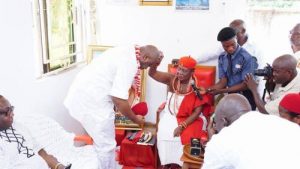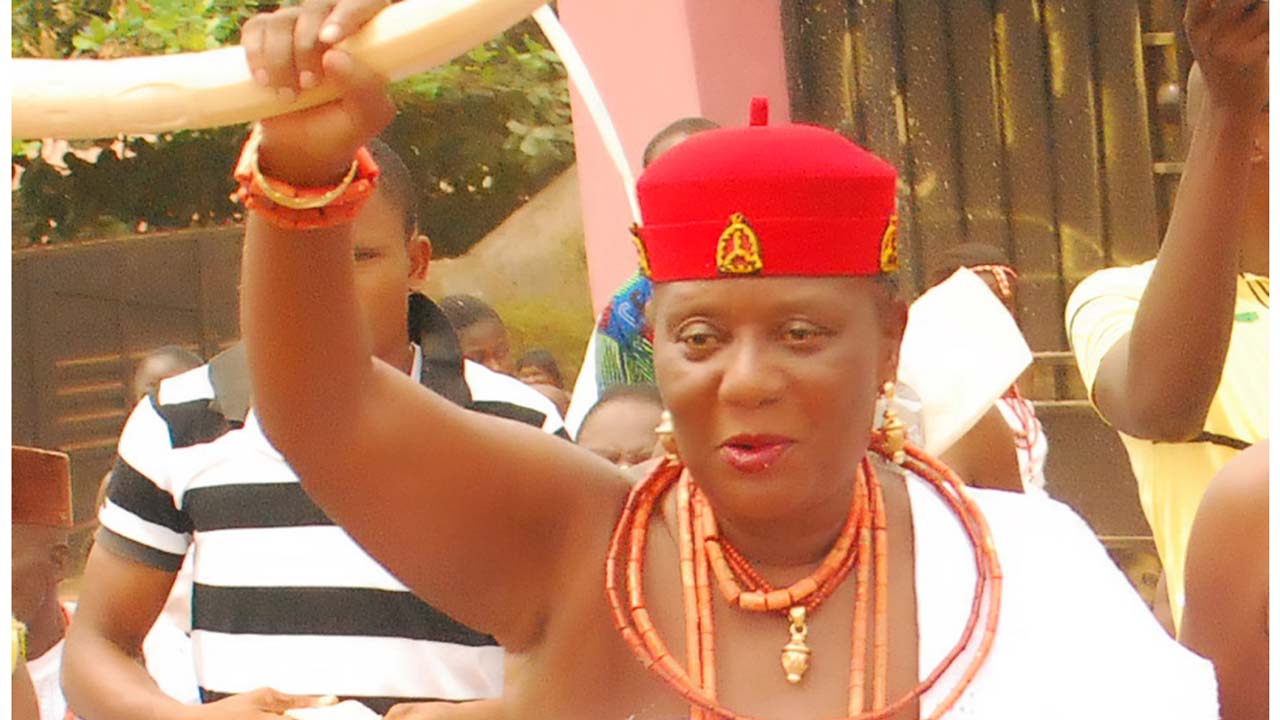During the Peaceworks, an event for Niger Delta dialogue organized by Dr Judith Asuni of Academic Associates, a notable female chief in the Delta State talked on the sideline with Vanguard Nigeria.
 Chief Obi Martha Dunkwu, Omu Anioma during her interview with the magazine said that at one point she had to become a man. In Delta State’s Aniomaland, from Asaba to the Agbor, the community has had traditional rulers for over 700 years. They have had a ruler who is a man and another who is a woman.
Chief Obi Martha Dunkwu, Omu Anioma during her interview with the magazine said that at one point she had to become a man. In Delta State’s Aniomaland, from Asaba to the Agbor, the community has had traditional rulers for over 700 years. They have had a ruler who is a man and another who is a woman.
But the male traditional ruler’s rule is always superior to the woman’s rule; that is in the event the community has both a male and female ruler at the same time. The man always came first and when Chief Obi Martha Dunkwu, Omu Anioma coronated, she was bestowed male rights, and now she can break the kolanut; though she’s a man and woman all-in-one.
“In Aniomaland, from Asaba to Agbor, among others, the forefathers designed that every community must have a traditional ruler but in Omu, we have a traditional ruler who is a man and another who is a woman. However, the male traditional rulers is superior in communities where there is also a female traditional ruler because man comes first, and, when you are crowned as in my case in Omu, you must come to the palace to reign; you must leave your marital home.
At the point of coronation, you are bestowed male rights; that is why you can break the kolanut, you become a man and a woman put together. I tried to find out why. Research shows that God created man and woman, but it is the woman that is better positioned to understand woman. That is why the Omu means Eze Nwany, female king on charge of women, female youths, markets, ancestral shrines, businesses.”
You can read the full interview with Vanguard Nigeria at this link.



